Discover Towel Fabric Types: Softness, Absorbency & Durability
Understanding Advanced Towel Fabric Types in B2B Applications
In the highly competitive B2B textile market, the selection of appropriate towel fabric types is paramount for meeting diverse industry demands, from luxury hospitality to specialized healthcare. The performance characteristics of a towel—its absorbency, durability, drying speed, and tactile feel—are intrinsically linked to its fundamental fiber composition and manufacturing process. This comprehensive guide delves into the technical aspects, industry trends, and application-specific advantages of various towel fabric constructions, offering insights crucial for procurement professionals, textile engineers, and product developers. We explore how different towel varieties influence operational efficiency, user satisfaction, and overall cost-effectiveness across a multitude of commercial environments.
Current Industry Trends in Towel Fabric Technology
The textile industry is continually evolving, driven by advancements in material science and sustainable manufacturing practices. Key trends impacting the development of advanced towel fabric types include the increased demand for eco-friendly materials, enhanced performance features, and smart textiles. There's a notable shift towards organic cotton, bamboo, and recycled polyester blends, aiming to reduce environmental footprints without compromising quality. Furthermore, innovations in fiber treatments are leading to antimicrobial, quick-drying, and odor-resistant towel varieties, which are particularly valued in high-traffic commercial settings like gyms, spas, and healthcare facilities. Microfiber technology continues to advance, offering superior absorbency and lint-free cleaning properties, making it a staple in industrial and automotive cleaning applications. The focus is on achieving a balance between luxury, longevity, and ecological responsibility across all categories of towel type fabric.
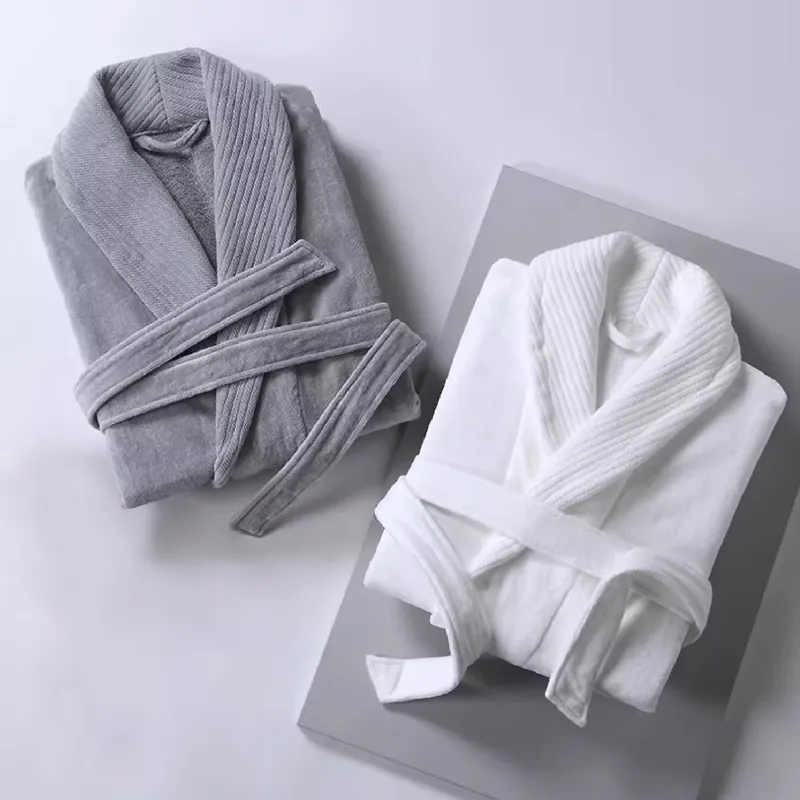
Technical Specifications and Material Science of Towel Fabric Types
The performance of various towel fabric types is fundamentally determined by their constituent fibers and structural design. Cotton remains a dominant material due to its natural absorbency and softness. Within cotton, distinctions are made based on staple length and processing: Egyptian and Pima cotton, known for their extra-long staples, produce exceptionally soft and durable towels. Upland cotton is more common and cost-effective. Bamboo fibers offer remarkable absorbency and natural antimicrobial properties, while microfiber (typically a blend of polyester and polyamide) excels in quick-drying capabilities and lint-free cleaning, making it ideal for specialized applications. Modal, a type of rayon derived from beechwood, provides superior softness and resistance to shrinkage. The weave structure, such as terry loop, waffle, or flat weave, also significantly impacts texture, absorbency, and drying characteristics.
Comparative Specifications of Common Towel Fabric Types
| Fabric Type | Primary Fiber | Typical GSM Range | Absorbency Rating (1-5, 5=highest) | Drying Speed Rating (1-5, 5=fastest) | Durability | Key Advantages |
|---|---|---|---|---|---|---|
| Terry Cotton (Standard) | Upland Cotton | 400-600 | 4 | 3 | Good | Soft, highly absorbent, widely available |
| Egyptian/Pima Cotton | Extra-long Staple Cotton | 500-800+ | 5 | 3 | Excellent | Luxurious softness, superior absorbency, exceptional durability |
| Bamboo Viscose | Bamboo | 500-700 | 5 | 4 | Good | Extremely soft, naturally antimicrobial, hypoallergenic |
| Microfiber | Polyester/Polyamide Blend | 300-500 | 4 | 5 | Very Good | Ultra-fast drying, highly absorbent, lint-free, excellent cleaning |
| Linen | Flax | 350-550 | 3 | 4 | Excellent | Highly durable, quick-drying, unique texture, good for exfoliation |
The Grams per Square Meter (GSM) is a critical metric, indicating the density and weight of the fabric; higher GSM generally correlates with greater absorbency and plushness, though it can also extend drying times. Zero-twist and low-twist yarns are engineered for increased softness and absorbency by reducing yarn twists, which allows more fiber surface area to be exposed. Conversely, ring-spun cotton offers greater strength and durability. Understanding these nuances is essential for selecting the optimal towel material for specific operational requirements, especially when considering the long-term cost of ownership for different towel varieties.
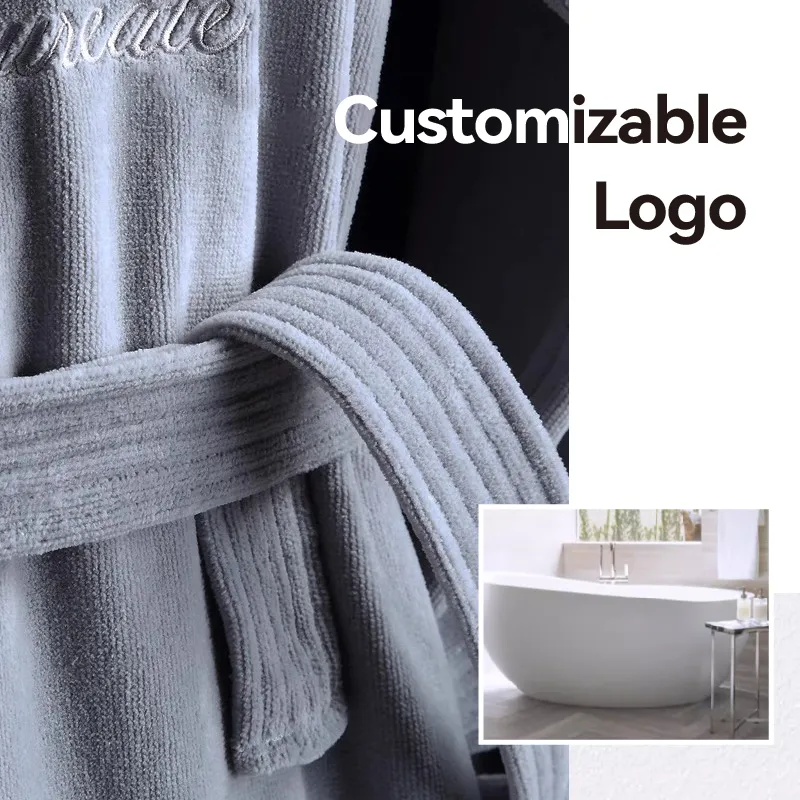
Manufacturing Process Flow for Towel Fabrics
The production of high-quality types of bath towel material involves a sophisticated multi-stage manufacturing process, ensuring consistency, durability, and desired performance characteristics. This begins with meticulous fiber selection and progresses through yarn spinning, weaving, and various finishing treatments.
Schematic Steps of Towel Fabric Production:
1. Fiber Sourcing & Preparation
Raw fibers (e.g., cotton, bamboo, synthetic polymers) are meticulously sourced, cleaned (ginning for cotton), carded to align fibers, and sometimes combed to remove shorter fibers and impurities, creating a smooth, strong sliver.
2. Yarn Spinning
Slivers are spun into yarn using techniques like ring spinning (for strength and uniformity), open-end spinning (for bulk and economy), or zero-twist spinning (for maximum softness and absorbency).
3. Weaving/Knitting
Yarns are woven on specialized looms. Terry towels typically use a double-warp loom to create looped pile surfaces, while waffle weaves are produced for texture and quick-drying properties. Flat weaves create a smoother surface.
4. Dyeing & Bleaching
Fabrics undergo bleaching to achieve uniform whiteness, followed by dyeing in large vats using reactive, vat, or pigment dyes to ensure colorfastness and vibrancy. Mercerization may be applied to cotton for increased strength and luster.
5. Finishing Treatments
Various treatments enhance performance: shearing (to level loops), napping (to create a soft pile), softening agents, and specialized finishes like antimicrobial or stain-resistant coatings are applied. Heat setting ensures dimensional stability.
6. Cutting, Sewing & Quality Control
The finished fabric is cut to size, hemmed, and sewn. Each towel undergoes rigorous quality control checks for dimensions, weight (GSM), colorfastness, loop integrity, and overall finish, adhering to standards like ISO 9001 and Oeko-Tex Standard 100.
This meticulous process ensures that each product meets stringent quality and performance criteria. Testing standards, such as ISO 105 (for colorfastness), ISO 12947 (for abrasion resistance), and ASTM D3887 (for fiber composition), are rigorously applied at various stages. The typical service life of a commercial-grade towel ranges from 150 to 300 washes, depending on the fiber quality, weave density, and laundering practices. Target industries, including hospitality, healthcare, and leisure, benefit from towels engineered for specific needs. For instance, in hospitality, the emphasis is on luxurious feel and durability, while in healthcare, antimicrobial properties and superior absorbency are critical. Advantages across these applications often include significant energy savings through faster drying times, enhanced corrosion resistance in industrial laundry environments, and superior hygiene due to advanced treatments.

Application Scenarios and Technical Advantages
The selection of specific types of bath towel is highly dependent on the intended application, with each fabric type offering distinct technical advantages.
- Hospitality (Hotels, Spas, Resorts): For this sector, high-GSM Egyptian or Pima cotton terry towels are preferred. Their plushness, superior absorbency, and softness enhance guest experience. Technical advantages include excellent laundering durability (withstanding hundreds of washes), luxurious tactile feel, and ability to maintain aesthetic appeal after repeated use, contributing to brand image and guest satisfaction.
- Healthcare (Hospitals, Clinics, Care Facilities): Microfiber or bamboo viscose towels are increasingly adopted here. Microfiber's ultra-fast drying and high absorbency are critical for managing spills and patient hygiene efficiently. Bamboo offers natural antimicrobial properties, reducing the risk of bacterial growth. Both contribute to improved hygiene standards and reduce laundry turnaround times, which are crucial for infection control and operational efficiency.
- Fitness & Wellness (Gyms, Yoga Studios): Lightweight microfiber towels are ideal due to their quick-drying nature and compact size. This minimizes locker room moisture, reduces locker space requirements, and significantly lowers energy consumption for drying. Their high absorbency efficiently manages sweat, enhancing user comfort and hygiene during workouts.
- Industrial & Automotive Cleaning: Specialized microfiber towels with specific weave structures (e.g., waffle weave for glass, high-pile for detailing) are used. Their lint-free performance and ability to trap microscopic dirt particles without scratching surfaces are unparalleled. This translates to superior cleaning efficiency, reduced chemical usage, and improved surface finish quality.
- Residential & Commercial Laundry Services: Durable, ring-spun cotton blends are often chosen for their balance of cost-effectiveness, longevity, and consistent performance after numerous wash cycles. Their robust construction resists tearing and excessive linting, extending product life and optimizing laundry operations.
In summary, the specific textile engineering behind each towel type directly contributes to significant advantages, ranging from enhanced user comfort and improved hygiene to substantial operational efficiencies and cost savings through prolonged service life and reduced energy consumption.
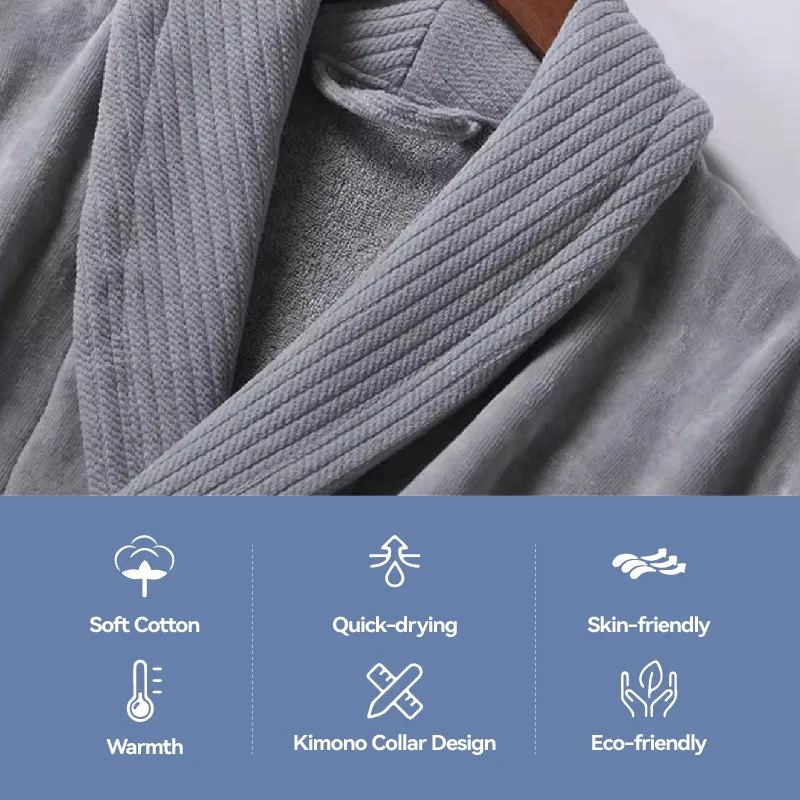
Vendor Comparison: Evaluating Suppliers of Towel Fabric Types
Choosing the right supplier for specialized towel fabric types is a critical decision that impacts product quality, supply chain reliability, and overall business performance. Key factors for vendor comparison include material sourcing transparency, manufacturing capabilities, adherence to international standards, and capacity for customization.
Comparative Analysis of Leading Towel Fabric Suppliers (Illustrative)
| Vendor Name | Specialization | Key Certifications | Customization Capability | Typical Lead Time (Bulk) | Quality Control |
|---|---|---|---|---|---|
| Global Textile Solutions | High-end Hospitality, Organic Cotton | GOTS, Oeko-Tex 100, ISO 9001 | Extensive (weave, color, size, branding) | 6-8 weeks | Rigorous, third-party audits |
| EcoFiber Innovations | Sustainable Bamboo & Recycled Materials | FSC, Recycled Content Standard, SA8000 | Moderate (fiber blends, basic designs) | 8-10 weeks | In-house, focus on material integrity |
| Performance Textile Group | Microfiber for Healthcare & Industrial | FDA-compliant, ISO 13485 (medical devices) | High (weave patterns, functional coatings) | 4-6 weeks | Extensive performance testing (absorbency, durability) |
| Value Textile Source | Cost-effective Commercial Towels | ISO 9001 | Limited (standard sizes, colors) | 3-5 weeks | Standard batch testing |
This comparison highlights that specialized needs often dictate specific vendor strengths. For instance, a hospitality chain prioritizing luxury would favor a vendor with strong GOTS and Oeko-Tex certifications and extensive customization options for their types of bath towel material, while a healthcare provider would focus on suppliers with ISO 13485 and FDA compliance for their microfiber textiles. Due diligence in assessing a vendor's quality control protocols, ethical sourcing, and ability to meet specific technical performance benchmarks is paramount.
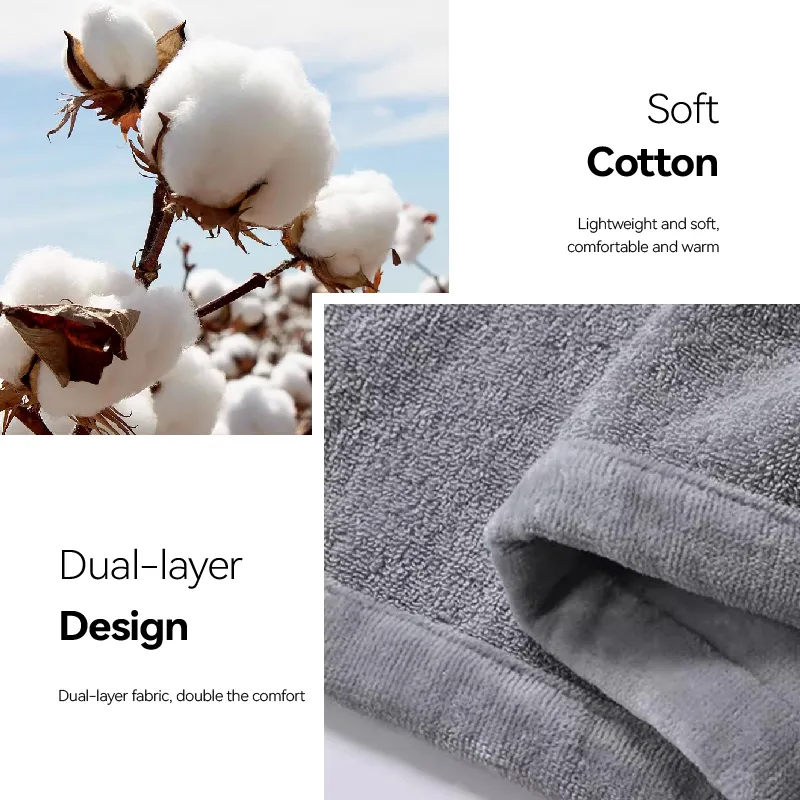
Customized Solutions and Design Flexibility
For many B2B clients, off-the-shelf towel solutions are insufficient. Customization plays a crucial role in branding, operational efficiency, and meeting unique functional requirements. Manufacturers capable of offering bespoke solutions for towel fabric types can provide significant value. This includes custom GSM, specific fiber blends (e.g., cotton-modal for enhanced softness and durability), unique weave patterns (e.g., jacquard logos, distinct border designs), and specialized finishes (e.g., permanent antimicrobial treatments, water-repellent coatings for specific industrial uses). Dyeing to exact Pantone color specifications for brand consistency is also a common requirement. The ability to produce various towel varieties that perfectly align with a brand's aesthetic and performance needs, from hand towels to bath sheets and robes, is a key differentiator for leading suppliers. This flexibility ensures that businesses can optimize their textile investments for maximum impact and longevity.
Application Case Studies and Customer Experience
Real-world applications underscore the advantages of selecting appropriate towel type fabric.
Case Study 1: Luxury Hotel Chain Upgrade
A prominent international luxury hotel chain sought to elevate its guest experience and reduce operational costs associated with linen replacement. They partnered with a textile manufacturer specializing in high-grade Egyptian cotton for their bath linens. By implementing 700 GSM zero-twist Egyptian cotton towels and bathrobes, the hotel achieved a significant improvement in guest satisfaction scores related to in-room amenities. The initial investment was higher, but the towels demonstrated exceptional durability, showing minimal wear and tear after 200 wash cycles, exceeding the performance of their previous standard cotton towels. This led to a 15% reduction in annual linen replacement costs and positive customer feedback highlighting the luxurious feel and superior absorbency of the new towels, affirming the value of premium towel fabric types.
Case Study 2: Hospital Laundry Efficiency Enhancement
A large metropolitan hospital system faced challenges with high energy consumption and long turnaround times in its laundry department, particularly for patient towels. They transitioned from conventional cotton towels to a custom blend of fast-drying microfiber and bamboo viscose towels. The microfiber towels, with their superior wicking properties, reduced drying times by an average of 30% per load. The bamboo component contributed natural antibacterial benefits, aligning with the hospital's infection control protocols. Over two years, the hospital reported a 20% decrease in energy costs for laundry operations and an improvement in overall hygiene ratings, demonstrating the tangible benefits of technologically advanced towel fabric types in a critical environment.
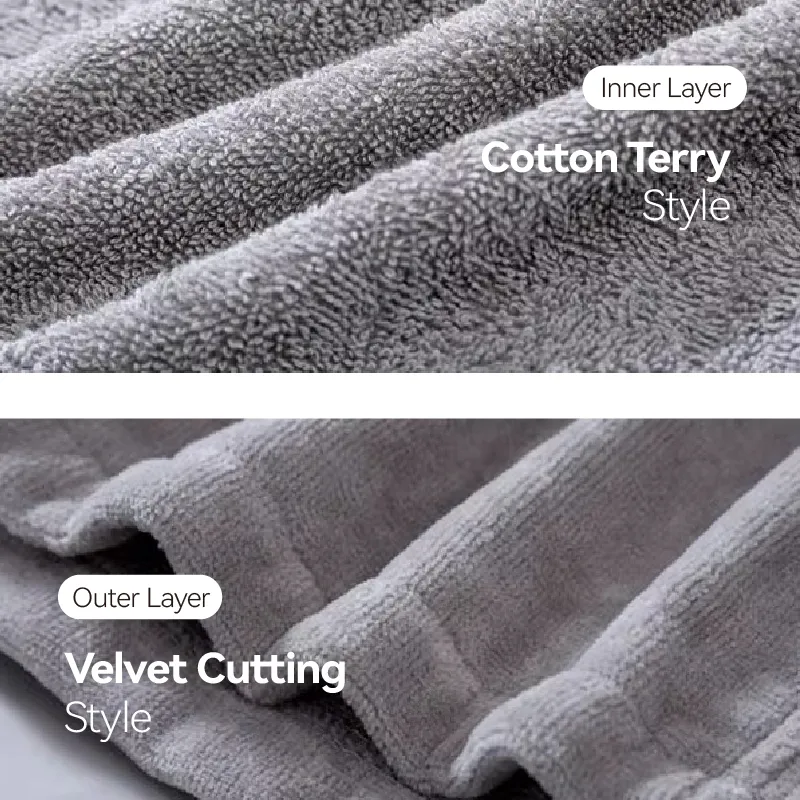
Ensuring Trustworthiness: FAQ, Lead Time, Warranty, and Support
Frequently Asked Questions (FAQ)
- Q: How do I determine the best GSM for my application?
A: Higher GSM (e.g., 600-800) typically indicates a denser, more absorbent, and plush towel, ideal for luxury hospitality. Lower GSM (e.g., 300-500) towels are lighter, quicker drying, and more cost-effective, suitable for gyms or industrial use. Consider absorbency, drying speed, and desired tactile feel. - Q: Are your towels certified for sustainability?
A: Many of our premium cotton and bamboo towel fabrics carry Oeko-Tex Standard 100 certification, ensuring they are free from harmful substances. Organic options are GOTS (Global Organic Textile Standard) certified. We are committed to ethical sourcing and sustainable manufacturing processes. - Q: Can you provide samples of different towel types?
A: Yes, we offer sample kits showcasing various towel fabric types, weaves, and finishes to help you make an informed decision. Please contact our sales team for sample requests. - Q: What is the typical lifespan of your commercial towels?
A: Our commercial-grade towels are engineered for durability, typically lasting between 150 to 300 industrial washes under recommended care instructions, depending on the specific fabric composition and application. This translates to an extended service life and lower replacement frequency.
Lead Time & Fulfillment Details
Standard bulk orders for in-stock towel varieties typically have a lead time of 3-5 weeks from order confirmation to dispatch. Custom orders, requiring specific dyes, weaves, or branding, may extend to 6-10 weeks depending on the complexity and volume. We maintain robust supply chain management to ensure timely fulfillment, and our logistics team coordinates efficient global shipping. Expedited production and shipping options are available upon request for urgent requirements.
Warranty & After-Sales Support
We stand by the quality of our towel fabric types. All products are covered by a standard 1-year limited warranty against manufacturing defects from the date of purchase. This warranty guarantees that our textiles meet specified GSM, fiber composition, and construction standards. Our dedicated after-sales support team is available to assist with any product inquiries, quality concerns, or reorder logistics, ensuring a seamless and satisfactory customer experience throughout the product lifecycle.
Authoritative Certifications and Partnerships
Our commitment to quality and ethical manufacturing is underpinned by adherence to rigorous international standards and strategic partnerships. We maintain ISO 9001 certification for quality management systems, ensuring consistent product and service delivery. Our textile products, especially our range of premium towel fabric types, are frequently certified by Oeko-Tex Standard 100, guaranteeing that they are free from harmful substances and safe for human use. For organic cotton offerings, GOTS (Global Organic Textile Standard) certification provides assurance of environmentally and socially responsible manufacturing. We partner with industry-leading fiber suppliers and dye houses that uphold strict environmental protocols. Our long-standing relationships with major hospitality brands and healthcare systems globally attest to our reliability and the superior performance of our textile solutions.
Conclusion
The strategic selection of towel fabric types is a nuanced decision in the B2B sector, directly impacting user experience, operational costs, and brand reputation. By understanding the intricate details of fiber science, manufacturing processes, technical specifications, and application-specific advantages, businesses can make informed choices that optimize their textile investments. From luxurious Egyptian cotton for high-end hospitality to high-performance microfiber for healthcare and industrial applications, the right fabric type delivers unparalleled benefits in absorbency, durability, drying efficiency, and overall value. Partnering with a knowledgeable and certified supplier who offers customization and robust support ensures long-term success and sustainability in a dynamic market.
References
- International Organization for Standardization (ISO). (Various standards).
- Oeko-Tex Association. (Oeko-Tex Standard 100).
- ASTM International. (Various textile testing standards).
- Global Organic Textile Standard (GOTS). (Latest Version).
- Textile Exchange. (Industry Reports and Standards).
-
Garment Washed Sheets Color Retention Prevents Fading After WashesNewsNov.14, 2025
-
Charcoal Bamboo Sheets Moisture-Wicking Property Enhances Sleep ComfortNewsNov.12, 2025
-
High Quality Satin Sheets Soft Touch Improves Hotel Guest ExperienceNewsNov.12, 2025
-
Poly Cotton Sheets Breathable Weave Reduces Skin Irritation For PatientsNewsNov.12, 2025
-
Microfiber Sheet Stain Resistant Feature Eases Hotel HousekeepingNewsNov.12, 2025
-
Polyester Cotton Bedding Durable Fabric Withstands Frequent Hotel WashesNewsNov.12, 2025
-
Microfiber Pillow Filling Even Distribution Prevents LumpingNewsNov.03, 2025






